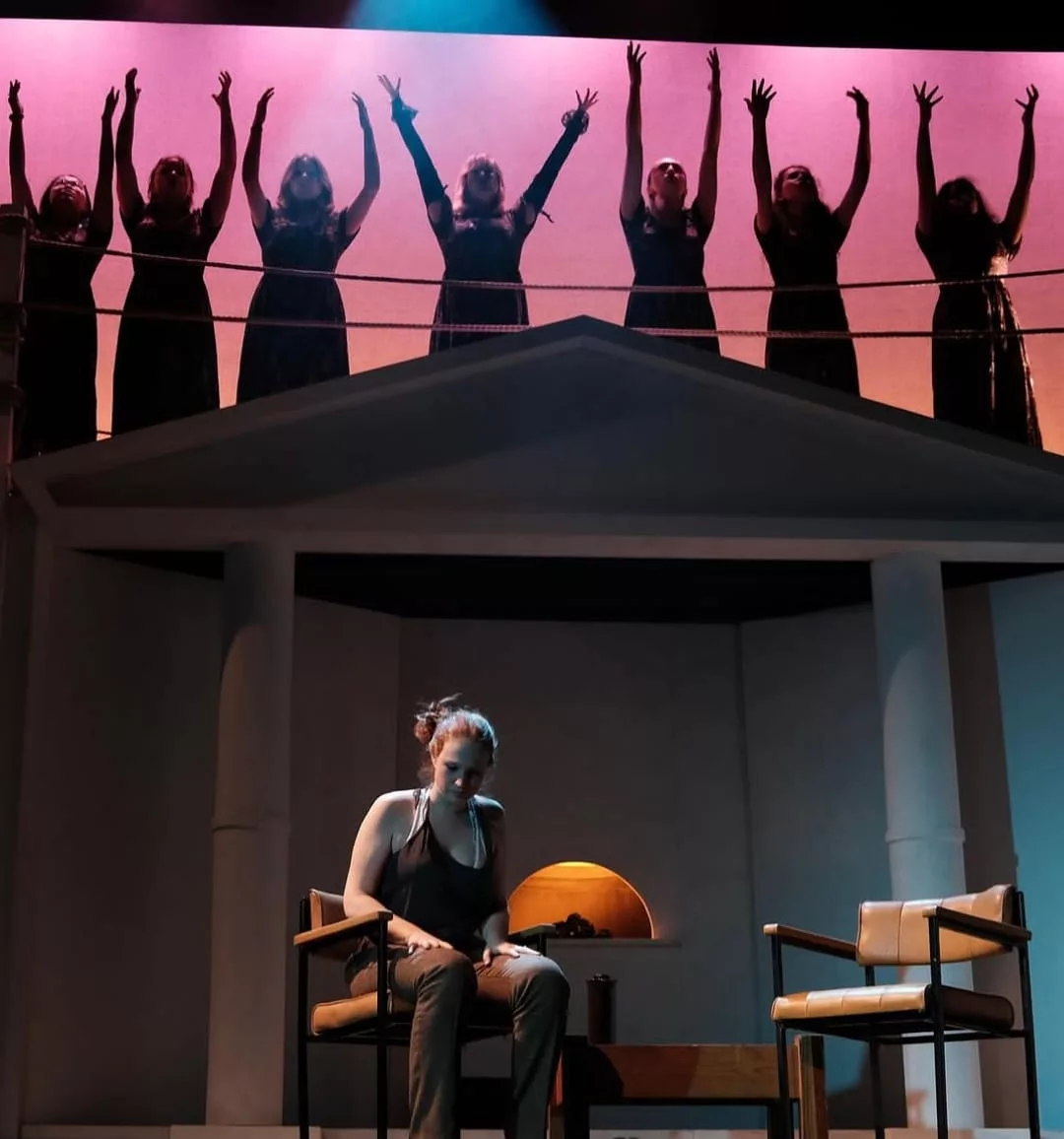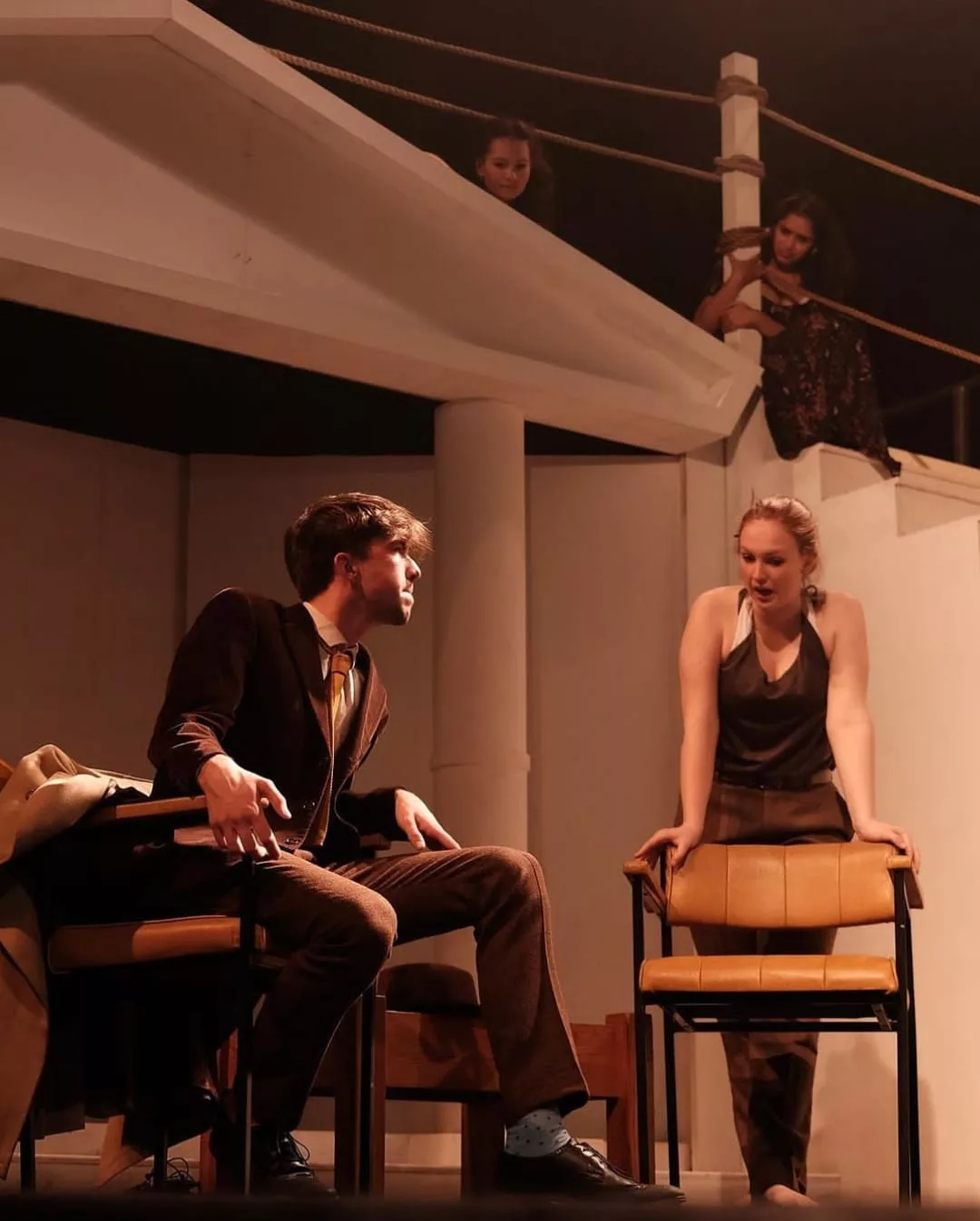The Oxford Greek Play is a bizarre tradition: an undergraduate foray into Greek tragedy which first occurred in 1880 and has continued triennially ever since. This year’s instalment sees Euripides’ Medea run at the Oxford Playhouse in a production which rises to the inevitable challenges of setting a play with significant tracts literally in Ancient Greek.
The play progressed well with Siena Jackson Wolfe playing the titular character, her performance oscillating from intense rage to strategic and consciously performative passivity. At the play’s climax, Medea’s murderous grief was sympathetic and entirely convincing. Medea found its stride by its second act, the dramatic costume change of Medea – from Primarkesque casuals to a stunning Grecian gown – sparking a shift towards rapid and intense plot movement. The new translation by co-director Neel Gokal complemented these profoundly modern costume choices with its slide into profanities: the line “Woe is me!” found its analogue in an “Oh, fuck!”. Overall, a balance of modernity and antiquity was struck in a way which preserved the historicity of the text whilst still transmuting it for a modern audience.
Most impressive about this version of Medea was its set (by Elspeth Rogers): an abstract portico adjoining a shadow box, with a raised platform at its precipice. The result was a scene of Classical spectacle complemented by lighting (by Alva Orr) which gave the atmosphere of an Aegean summer. The raised platform played host to a chorus of six who remained on stage throughout the play and chimed in after each scene to give their two cents on the plot. This was done with precise and unwavering poetic metre (in Ancient Greek, of course). The shadow box was an incredibly creative set-piece which allowed the play to overcome the notorious constraint of Greek drama: that all the intrigue happens offstage. Instead, we were enticed into watching backstories, marriages, and murders played out in real-time as they were narrated by minor characters who drifted on and off the stage.

A note on the Ancient Greek aspect: fear not fellow non-Classicists, it was subtitled by a pair of TV screens flanking the stage. However, I cannot speak for the effectiveness of this staging hack which, according to a dig through the Cherwell archives, has been used since at least 2011. Unfortunately, the subtitles were poorly co-ordinated with the actual speech and were so bright that they detracted from the few moments of solemn darkness. In the spirit of charity, I chalk these fallbacks up to opening night technicalities.
Medea provides a challenge to directors in its directness of plot: we are told the story of Medea’s rage at Jason, the fallout this entails, and little more. The play is devoid of side-plots, and ends abruptly, in a conclusion which can feel unsatisfactory. Directors Halah Irvine & Gokal offset this constraint well through the play’s emphasis on the prologue of the Nurse, delivered by Eve Campbell. The mythological context and backstory was provided less through the poetry than by the Nurse’s angst and desperate concern over her mistress and friend, Medea. This framing device was crucial to the production’s success.
A small number of scenes were limited by the sheer volume of line delivery: shouting matches compounded one another and by the end there was little place left to go. The accompaniment of a live string quartet – which was otherwise well-utilised – added in part to this snowballing. A change of pace, and dynamic, would have worked wonders, allowing especially the character of Jason (Medea’s conniving husband, played by Jay Shah), to rise into a more three-dimensional role. That being said, this made Jason an easy character to hate: a useful redirection of the play which allowed us to hail Medea as a troubled hero rather than a murderous she-devil.
Honourable mentions must go to the Tutor, played by Peregrine Neger, and Creon, played by Pablo Wickham, who both provided requisite sass to an otherwise quite distressing play. The intensity of the rest of the play was balanced well by a domestic scene at the end of the first act with Medea and Aegeus, played by Ben Gilchrist, which brought on roars of laughter at double-entendres which are surely absent from Euripides’ original.

All in all, Medea was a well-carried out exercise in Greek tragedy. Despite the limitations of its form, the production was assured: bouncing along from hilarity to shock to horror.
Oxford Classical Dramatics Society’s Medea will continue its run at the Oxford Playhouse until Friday 10th November, with matinees and evening performances on both Thursday and Friday. Tickets are available to purchase.


